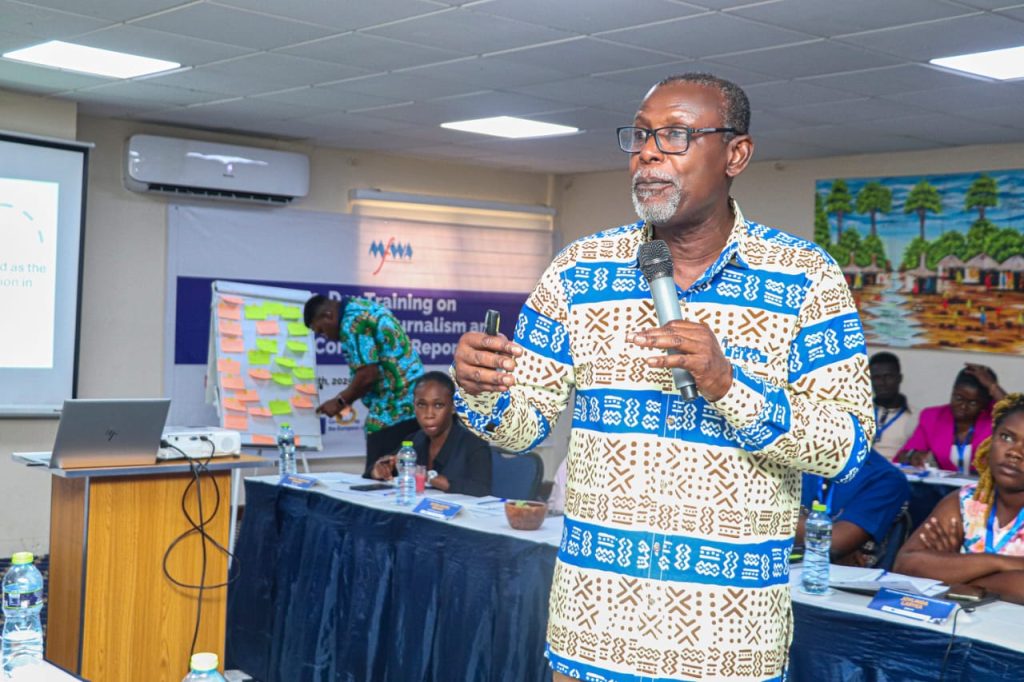The National Service Authority (NSA) has strongly objected to a directive from the Ministry of Youth Development and Empowerment ordering the immediate termination of its digital system and the adoption of a replacement within 15 days.
In a detailed response dated 27 August 2025, the Authority’s Director-General, Felix Gyamfi, emphasised that the technology, which has been in operation for seven years and incorporates more than 25 enterprise-grade modules, has been pivotal in exposing payroll fraud rather than enabling it.
The Herald has obtained custody of some of the documents related to the agreement between the state and Inpath Technologies Limited, revealing that the platform is robust enough to combat fraud.
The NSA’s digital transformation is anchored on a 10-year Build–Operate–Transfer (BOT) contract, now in its seventh year, which is due to deliver full ownership of its systems to the Authority by August 2028.
The integrated platform comprises four key service areas designed to streamline postings, strengthen transparency, and enhance service delivery for graduates and institutions nationwide.
At its core is the Central Service Management Platform (CSMP), which automates the entire posting process from graduate list submission to monthly evaluations, eliminating administrative delays and ensuring accountability.
Supporting this is the Digital Identity Service (Metric App), which provides biometric verification linked to the National Identification Authority (NIA) database, reducing fraud risks.
A Digital Certificate Management System manages the issuance, distribution, and verification of certificates. At the same time, the Internally Generated Fund (IGF) Module tracks attendance records to ensure accurate billing and revenue mobilisation across non-subvented institutions.
Under the BOT arrangement, all intellectual property, software, and hardware assets, including 345 biometric devices, 276 internet devices, and 345 data SIMs deployed nationwide, will be transferred to the NSA in 2028.
The agreement also requires that all systems be upgraded to their latest versions before transfer, with the CSMP already advanced to Version 3 to counter emerging fraud patterns and future-proof operations.
The Authority stressed that the system has been instrumental in detecting anomalies in payroll submissions. According to the NSA, a Ministry of Finance–mandated headcount in February 2025 revealed an 83 per cent inflation in payroll submissions when manual records were compared with biometric-verified data generated by the digital platform. This discovery prompted a Presidential directive for a full investigation into the “ghost names” scandal.
“The system was instrumental in uncovering the fraud, not enabling it,” the NSA’s letter stated, adding that compliance with the system’s controls had saved the nation more than GH¢460 million in 2025 alone.
It further cited an Auditor-General’s forensic audit, which concluded that the technology is “fit for purpose” and that financial malfeasance had arisen from manual circumvention of its controls.
Such breaches included payroll lists generated outside the system and indemnities issued to override safeguards flagged by the Ghana Interbank Payment and Settlement Systems (GhIPSS).
Independent reviews by the National Investigations Bureau (NIB), the National Identification Authority (NIA), and audit firm KPMG also affirmed the system’s integrity, pointing instead to weaknesses in manual processes.
Despite these findings, the Ministry has directed the Authority to suspend the system and procure a new one within 15 days.
The NSA warned that such a move risks operational collapse, noting that registration for the 2025/2026 service year, involving over 130,000 graduates, has already been delayed for six weeks, while certificates for more than 20,000 nursing personnel remain outstanding.
The Authority also highlighted legal and procedural challenges, stressing that compressing procurement and technical deployment into 15 days would breach Ghana’s public procurement laws.
“Replacing such a mature system in 15 days, without equivalent functionality, validation, and stakeholder training, presents a far higher operational and financial risk than maintaining and strengthening what exists,” the NSA cautioned.
Instead, the Authority urged adherence to the Auditor-General’s recommendations, which include enforcing a “no Ghana Card, no posting” policy, eliminating private enrolments, ensuring payroll management is handled by the Controller and Accountant-General’s Department, and prohibiting manual overrides.
The NSA noted that reforms implemented over the past six months had reduced the number of approved tertiary institutions for national service from 275 to 100, eliminated more than 61,000 questionable private enrollments, and tightened biometric verification for new registrants.
Concluding its response, the Authority appealed to the Ministry to reconsider its directive.
“A sudden termination and rushed replacement is neither feasible nor prudent. The urgent course is to abide by the audit recommendations, which provide a clear path to operational recovery at no risk to the Authority, while designing a structured transition plan that protects service continuity, complies with procurement law, and preserves public trust.”
The post Auditor-General, NIB, KPMG support NSA technology after revealing GH¢460m ghost names scam appeared first on The Herald ghana.





